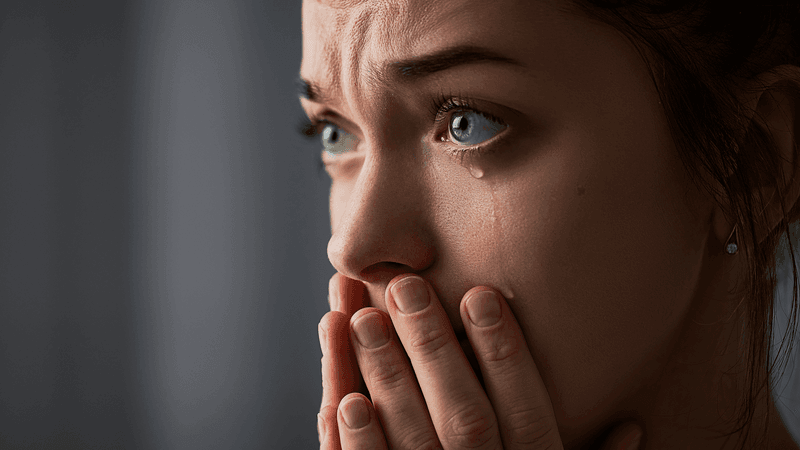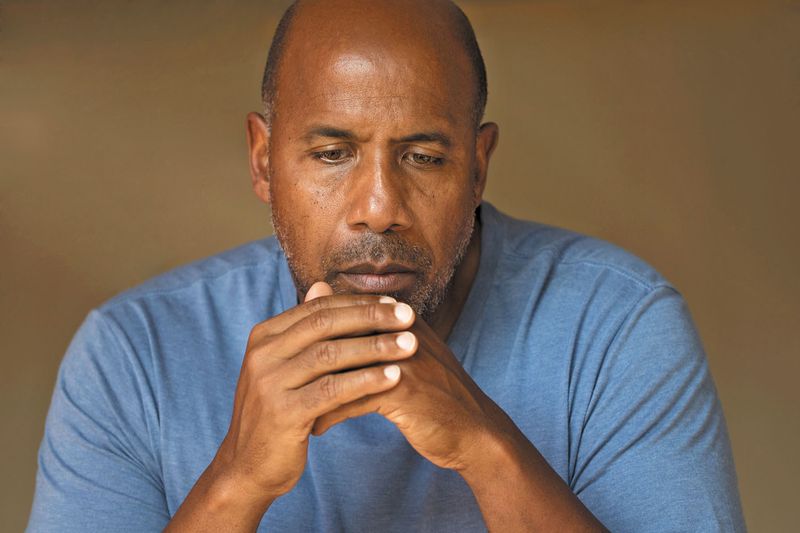Feeling drained isn’t just about being tired after a long day. Emotional exhaustion runs much deeper and affects your mind, body, and spirit in ways that regular rest can’t fix.
When your emotional tank hits empty, your whole world starts to feel overwhelming and gray. Recognizing these warning signs early can help you take action before burnout takes complete control of your life.
1. Your Sleep Feels More Like a Battle Than Rest
Tossing and turning becomes your nightly routine when emotional exhaustion takes hold. Your mind races with worries, replaying conversations or imagining worst-case scenarios instead of letting you drift peacefully into sleep.
Even when you do fall asleep, you wake up feeling like you never rested at all. Your body might be still, but your brain refuses to shut down and recharge properly.
Quality sleep requires emotional calm, something that disappears when you’re running on empty inside.
2. Small Problems Feel Like Giant Mountains
Running out of milk suddenly feels like the end of the world. Traffic jams make you want to scream, and waiting in line becomes unbearable torture that tests every ounce of your patience.
Normal daily hiccups that you used to handle with ease now feel overwhelming and impossible to manage. Your emotional reserves are so low that minor inconveniences hit you like major disasters.
Everything seems amplified and intense because you lack the emotional buffer that usually helps you cope with life’s regular bumps and challenges.
3. You’ve Lost Interest in Things You Once Loved
Hobbies that used to bring you joy now feel like chores you’d rather avoid. Books sit unread, art supplies gather dust, and your favorite TV shows can’t hold your attention anymore.
Activities that once energized and excited you now seem pointless and draining. You might start projects but quickly lose motivation and abandon them halfway through without caring about the outcome.
This emotional numbness steals the color from life, leaving everything feeling flat and meaningless when you’re running on emotional fumes.
4. Your Patience Has Completely Vanished
Snapping at loved ones becomes your default response to almost everything. Simple questions from family members or coworkers feel like personal attacks that deserve sharp, angry replies.
You notice yourself getting irritated by sounds, movements, or behaviors that never bothered you before. Your emotional fuse has become incredibly short and unpredictable.
Later, you might feel guilty about your reactions, but in the moment, controlling your temper feels impossible because your emotional regulation system is completely overloaded.
5. Making Decisions Feels Impossible
Choosing what to eat for lunch becomes a mental marathon that leaves you exhausted. Simple decisions that used to take seconds now require enormous amounts of mental energy you don’t have.
You might find yourself staring at restaurant menus for ages or standing in grocery store aisles feeling completely paralyzed by basic choices.
Decision fatigue sets in early and stays all day because your brain lacks the emotional fuel needed to process options and make confident choices about anything.
6. Your Body Aches Without Physical Cause
Headaches, muscle tension, and mysterious aches appear throughout your body even though you haven’t been physically active. Your shoulders feel like they’re carrying invisible weights that never get lighter.
Emotional stress manifests physically, creating real pain and discomfort that no amount of stretching or rest seems to relieve completely.
Your immune system might also weaken, making you more susceptible to colds and other illnesses because chronic emotional exhaustion takes a serious toll on your physical health.
7. You Feel Disconnected From Everyone Around You
Social interactions feel like you’re watching life through thick glass. Conversations happen around you, but you feel like an outsider looking in rather than an active participant.
Friends and family seem distant and hard to relate to, even when they’re sitting right next to you. You might smile and nod, but inside you feel completely alone.
Emotional exhaustion creates a barrier between you and others that makes genuine connection feel impossible, leaving you isolated even in crowded rooms full of people.
8. Crying Happens at Random Moments
Tears show up without warning during TV commercials, while reading emails, or when someone asks how you’re doing. Your emotional dam has cracks that leak at unexpected times.
Sometimes you cry for obvious reasons, but other times the tears come from nowhere and you can’t explain why you’re upset or what triggered the emotional release.
These crying spells aren’t necessarily about sadness – they’re your body’s way of releasing built-up emotional pressure that has nowhere else to go safely.
9. You’ve Started Avoiding Social Situations
Invitations to parties, dinners, or casual hangouts feel overwhelming rather than fun. You make excuses to stay home because the thought of being social requires energy you simply don’t have.
Even talking on the phone feels like too much effort, so you let calls go to voicemail and respond to texts much later than usual, if at all.
Isolation becomes your comfort zone because interacting with others demands emotional resources that are already completely depleted, making solitude feel like the only safe option.
10. Your Memory Feels Foggy and Unreliable
Important dates slip your mind, and you forget conversations that happened just yesterday. Your brain feels like it’s wrapped in cotton, making it hard to focus or remember basic information.
You might walk into rooms and forget why you went there, or start sentences but lose track of what you were trying to say halfway through your thoughts.
Emotional exhaustion affects cognitive function, making your usually sharp mind feel sluggish and unreliable when you need it most for daily tasks and responsibilities.
11. You Feel Guilty About Everything
Guilt follows you everywhere, making you feel bad about resting, saying no to requests, or taking time for yourself. You apologize constantly, even for things that aren’t your fault.
Setting boundaries feels selfish, and you worry that you’re disappointing everyone around you by not being available or helpful enough to meet their needs.
This guilt cycle drains even more emotional energy because you’re constantly judging yourself harshly instead of practicing the self-compassion you desperately need right now.
12. Your Motivation Has Completely Disappeared
Projects at work pile up because starting them feels impossible. You know what needs to be done, but finding the drive to actually do it seems like climbing Mount Everest.
Procrastination becomes your default mode, not because you’re lazy, but because your emotional tank is too empty to fuel productive action and forward movement.
Goals that once excited you now feel pointless and unreachable, leaving you stuck in a cycle of inaction that makes you feel even worse about yourself.
13. You’re Constantly Worried About Everything
Anxiety about future events, past mistakes, and present situations swirls in your mind like a tornado that never stops spinning. What-if scenarios play on repeat, creating stress about things that may never happen.
Your worry extends to situations completely outside your control, making you feel responsible for outcomes you can’t influence or change.
This constant state of worry exhausts your mental resources and prevents you from enjoying present moments because you’re always focused on potential problems and disasters.
14. You Feel Like You’re Just Going Through the Motions
Life feels like you’re following a script without any real engagement or enthusiasm. You show up to work, complete tasks, and interact with people, but it all feels mechanical and empty.
Nothing feels meaningful or purposeful anymore – you’re just checking boxes and getting through each day without any sense of satisfaction or accomplishment.
This emotional numbness makes you feel like you’re watching your own life from the outside rather than actively living it with passion and purpose.
15. Simple Self-Care Feels Like Too Much Work
Taking a shower, brushing your teeth, or preparing a healthy meal requires more energy than you have available. Basic self-care tasks feel overwhelming and exhausting.
You might skip meals, wear the same clothes for days, or avoid looking in mirrors because maintaining your appearance feels impossible right now.
When you’re emotionally exhausted, even caring for your basic needs becomes a challenge because you’re running on empty and have nothing left to give, even to yourself.

















Comments
Loading…